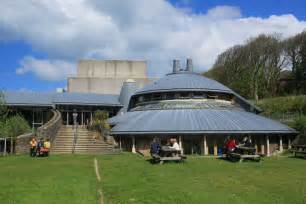| "The Role of Arts Subsidy in Making Wales" |
Arts Policy Report |
| Public Arts Retrospective , Planet Magazine , December 23, 2013 |
 “Historically theatre has always been weak in Wales.” It is the accepted conclusion and is the premise for a sizeable article in Planet 205, pages 59-69. It is a substantial piece, over 3000 words, titled “the Role of Subsidy in Making Wales.” It lacks any primary research, being a trawl through secondary sources.
“Historically theatre has always been weak in Wales.” It is the accepted conclusion and is the premise for a sizeable article in Planet 205, pages 59-69. It is a substantial piece, over 3000 words, titled “the Role of Subsidy in Making Wales.” It lacks any primary research, being a trawl through secondary sources. As a piece of writing this lack of direct contact with its subject matter gives it a tired, somewhat dogged feel. Its choice of secondary material is unwise. It cites Dedwydd Jones' book from 1985 but the author is neither a performed playwright nor a critic. He has no presence in the history of Welsh theatre. The author's prose has the dreariness of the second-hand. Thus “the Welsh Arts Council liked to think of itself as autonomous but received its monies en bloc from the Arts Council of Great Britain, and clearly was led by its hegemonic values.” Not just is it dead phrasing but lacks any evidence or example. Jargon is elevated to sagacity. A university lecturer declares, again without illustration, that Wales is “unable to decolonise its thought processes”. The author questions the building of the theatres of the 1970s declaring Clwyd, the Torch and Hafren to be unsuited for a rural nation. (He excludes Aberystwyth.) The catchment areas are declared respectively to be 8000, 14000 and 12000. The consequence is they “have struggled to attract viable audiences.” No audience figures are cited to attest to unviability. The paucity of new drama and comedy is blamed on the audience “that might prefer not to face the sensitivities and divisions of history, in-migration [sic] and language.” This attribution is cited without any evidence. Because we are bad audiences “there was much writing that inadvertently entrenched national “characteristics” and failed to ask fundamental questions.” Needless to say this remains at the level of assertion without example. It may well be true that the English artistic directors “were unable to work outside the hegemony.” But the argument needs supporting with the programming that took place being cited. That would, however, oblige the author to raise his head from its absorption in the secondary literature only. There was improvement in theatre and funding, he says, with Paupers Carnival, Cardiff Lab, Moving Being, Brith Gof. By 1993 the number of touring companies had risen to 22, principally theatre-in-education. Theatr Clwyd is picked out for critique. Between 1976 and 1980 it put on 2 Welsh plays out of 28 productions. The Arts Council does change but Ruth Shade likens it to a panopticon. Quality is critiqued as being a measure of “worth”. The italics are the author's. As for the arms-length relationship “there is little buffer between the government and the funders who respond to supplicants.” The author naturally does not care that ACW might like its recipients to sell some tickets. Curiously the article omits any mention of the great drama strategy fiasco nor the government's intent that the arts be included in the bonfire of the quangos. The article concludes with a series of quotations without connection from a series of ACW reports. The endings of Theatr Powys and Theatr Gwent are regretted. Strangely it then changestack. “Investment in the arts has had a vital role in creating Wales. With satisfaction one can note the support and even leadership offered by funders in this development.” This is a poor piece of cultural reportage, half-hearted, unadventurous, dogmatic. It would not be tolerated in England or Scotland Its cause is the lack of any primary contact with anyone in the arts of Wales. Its language is drear, and its cause is clear. It is backed to the hilt by state subsidy which removes any impetus to seek a readership. If there is to be critique of the state it is its tolerance with impunity of writing of this ilk. |
Reviewed by: Adam Somerset |
This review has been read 658 times There are 22 other reviews of productions with this title in our database:
|
